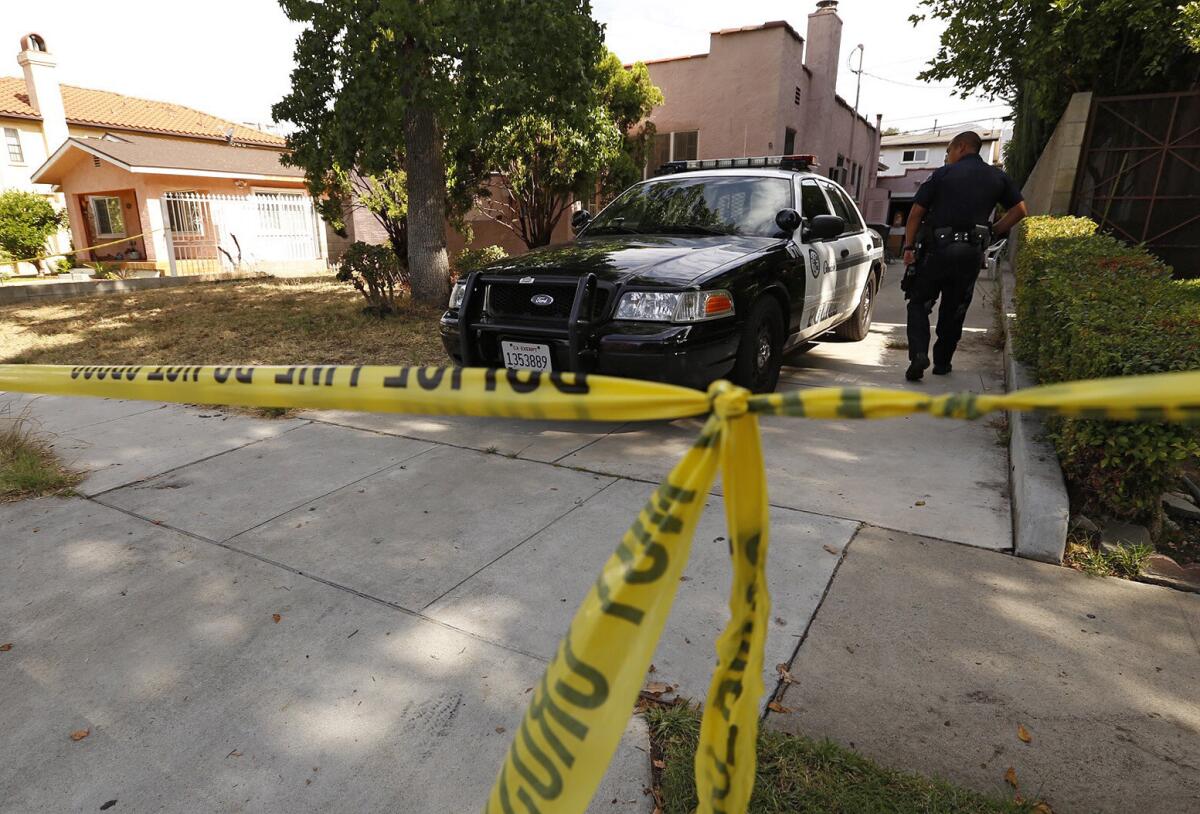Glendale police vow not to enforce federal immigration laws

Hoping to curb deportation fears in the community, the Glendale City Council approved a resolution this week affirming the police chief’s recent statement that his officers are sworn to ensure Glendale’s public safety, not enforce federal immigration laws.
Chief Robert Castro’s statement — which said, in part, that Glendale police do not “have the authority nor the responsibility to incarcerate or detain individuals solely based on immigration status” — comes after President Trump’s threats to cut off federal funding for so-called sanctuary cities that refuse to cooperate with federal immigration enforcement efforts.
While the council approved the resolution by a 4-0 vote, city officials noted that the police department has a longstanding policy of “protecting and serving the entire community and recognizing the dignity of all persons, regardless of their immigration status.”
City officials acknowledged, however, that they do have an agreement with U.S. Immigration and Customs Enforcement (ICE), which allows the federal agency to rent space in the city jail for ICE detainees.
Deputy Police Chief Carl Povilaitis, who spoke on Castro’s behalf Tuesday, said ICE rarely uses the jail, and the city makes little revenue off the agreement.
According to a city report, in 2015 and 2016, ICE paid Glendale $7,225 for its jail, using a formula of $85 a day per person. The contract was signed in 2007 by then-City Manager James Starbird and is indefinite, but can be canceled by either party with 60 days’ notice.
Though one resident called for Glendale to rescind the ICE agreement, City Manager Scott Ochoa warned against it because the police need to maintain good working relationships with a variety of federal agencies other than ICE, such as the FBI.
Canceling the agreement, “I think has potential for unintended consequences,” Ochoa said.
Zint writes for the Glendale News-Press.
ALSO
Police arrests are plummeting across California, fueling alarm and questions
Irvine mother and daughter accused of operating a national prostitution ring
Supreme Court declines case over Glendale’s controversial ‘comfort women’ statue
More to Read
Sign up for Essential California
The most important California stories and recommendations in your inbox every morning.
You may occasionally receive promotional content from the Los Angeles Times.











